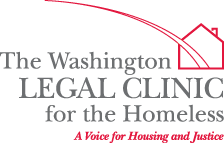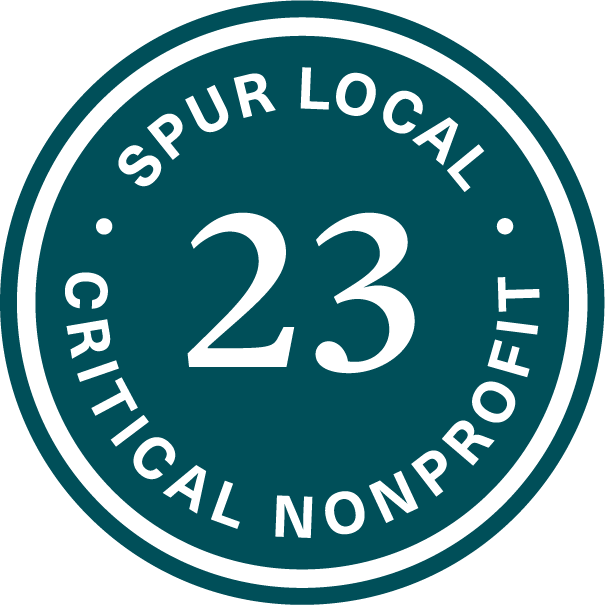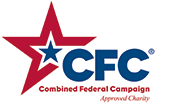We are happy to see that the DC Council made some new investments in affordable housing programs in the first stage of budget decisions last week. But the DC Council needs to do so much more to get us to a #JustRecoveryDC. DC had a preexisting affordable housing crisis that is about to get much worse as a result of the global pandemic and economic recession. Many experts estimate that homelessness will increase 40-45% nationwide. A lack of safe housing and shelter combined with longstanding disparities have resulted in people experiencing homelessness being most impacted by COVID-19: 315 positive cases and 20 dead in DC.
Nearly 9/10 people experiencing homelessness in DC are Black. We urge the Council to prevent harm from occurring to Black people, not just mourn it after harm occurs. That includes preventing homelessness, ending homelessness, investing in deeply affordable permanent housing, and diverting money from programs that hurt Black DC residents. Read our statement on systemic racism and white supremacy here.
Check out the status of the Legal Clinic’s highest priority asks for the FY 2021 budget below. (Further background on our budget asks can be found here.)
This blog has been updated with the latest version of the budget circulated by Chairman Mendelson on July 6. And updated again after the votes on July 7– new blog coming soon with more information on the decisions made on July 7.
Place People in Hotels, Dorms and Housing to Prevent COVID-19 Transmission
Ask: Fully fund a requirement that DC offer each person experiencing homelessness a noncongregate placement until a vaccine is widely available or the pandemic is over #WhatHomeDC
Status: No progress.
7/6 Chairman Mendelson’s circulation: No progress.
7/7 First vote: No progress.
Eviction Prevention
Ask: Increase the Emergency Rental Assistance Program (ERAP) by at least $12 million (M) and develop an expanded eviction prevention program (#CancelTheRent).
Status: DC Council restored Mayor’s $1.115M cut plus added $150,000.
Remaining need: At least $12M for ERAP.
7/6 Chairman Mendelson’s circulation: Added $5M for ERAP, leaving $7M unfunded.
7/7 First vote: Added $1M to ERAP from Charles Allen’s amendment to delay to corporate tax cuts (passed unanimously). $6M left unfunded.
End Family Homelessness
The Mayor only added 54 affordable housing slots for families in Permanent Supportive Housing (PSH). This means that only 2% of Rapid Re-housing (RRH) families would have a longterm subsidy to exit to. The rest are likely to cycle back into homelessness. The Department of Human Services (DHS) is starting up RRH time limit terminations in July.
Ask: 1) Require a moratorium on RRH time limit terminations in FY20 and 21 to allow families to have a shot at getting employment and recovering from the public health emergency.
2) Add $17.39M to Targeted Affordable Housing (TAH) vouchers for 712 families.
3) Add $10.42M for 500 LRSP tenant vouchers.
Status: No progress.
7/6 Chairman Mendelson’s circulation: No progress.
7/7 First vote: Added $1.5M for TAH for 60 homeless families from Brianne Nadeau’s amendment to reform the Qualified High Tech Company tax credit (voted for by Nadeau, Pinto, Cheh, Allen, Gray, Trayon White, Bonds, Silverman, Grosso and Robert White). $15.89M left unfunded. Added $1.4M for LRSP tenant vouchers for 70 families from Charles Allen’s amendment to delay to corporate tax cuts. $9.02M left unfunded.
End Chronic Homelessness
The Mayor only funded PSH for 96 individuals and 54 families who are chronically homeless.
Ask: Fund PSH for 1404 individuals and 248 families.
Status: The Council has increased PSH for 50 individuals. No progress on families.
Remaining need: PSH for 1354 individuals, 248 families.
7/6 Chairman Mendelson’s circulation: No progress.
7/7 First vote: $2M for PSH for 68 individuals and $2M for PSH for 53 families from Brianne Nadeau’s amendment to reform the Qualified High Tech Company tax credit. PSH for 1286 individuals and 195 families still unfunded.
Invest in Re-entry Housing Pilot
Ask: $1.8M per year for a Re-entry Housing Pilot, including services, for 50 people.
Status: $1M funded
Remaining need: $800,000.
7/6 Chairman Mendelson’s circulation: No progress.
7/7 First vote: No progress.
Build Deeply Affordable Housing
Ask: 1) $180M in Housing Production Trust Fund (HPTF) for households making 0-30% Area Median Income (AMI).
2) $24M in project/sponsor-based Local Rent Supplement Program (LRSP).
3) Better target the property tax abatement to the creation of affordable housing available to people with incomes below 50% of AMI.
Status: Mayor added $50M, Council added $4.5M for 0-30% AMI housing ($9M total). $0 for LRSP.
Remaining need: $125.5M for HPTF, $24M for project/sponsor based LRSP.
7/6 Chairman Mendelson’s circulation: The Chairman decreased HPTF by $3.89M (meaning $1.95M less in 0-30%AMI for a total of $52.56M in HPTF for very low income housing). He added $5M to project/sponsor based LRSP. Some local funds are being used to leverage $88M for a new affordable housing fund. We are trying to get more information on what this is. The property tax abatement appears unchanged.
7/7 First vote: No progress.
Repair Public Housing
The Mayor put $25M into FY21 and $15M into FY22 for public housing repairs.
Ask: 1) $60M/year
2) Include protections from the Public Housing Preservation and Tenant Protection Amendment Act of 2020 in the Budget Support Act.
Status: The Council added $376,000 to the public housing repairs fund.
Remaining need: $34.6M in FY21, $45M in FY22, and $60M in subsequent fiscal years.
7/6 Chairman Mendelson’s circulation: An additional $25M in FY21 for public housing repairs, bringing FY21 funds to $50M. No additional money in later years. There is a Budget Support Act subtitle. It gives the Mayor approval over their spending plans and does not increase Council oversight. It does not include the protections for tenants that are included in the Public Housing Preservation and Tenant Protection Amendment Act of 2020.
7/7 First vote: No progress. Robert White moved an amendment to divert $35M from the streetcar to public housing repairs in FY21, which would have guaranteed two years of funding at $50M. His amendment failed 5-8 (voted for by Robert White, Trayon White, Pinto, Nadeau and Silverman). You can read the ANC7F Resolution opposing the streetcar expansion here.
To fund these critical needs, the Legal Clinic supports:
- Decreasing the police budget;
- Diverting money from Rapid Re-housing to permanent housing for families;
- Diverting $127M from the Streetcar to public housing repairs;
- Diverting $5.4M in Streetcar PayGo funds to ERAP;
- Diverting future years of the K Street Transit Project to public housing repairs;
- Increasing taxes on the wealthy;
- Closing tax loopholes; and
- Reforming DC’s tax code to both raise revenue and further economic and racial justice. (See here for more details.)
As the budget stands right now, it doesn’t even meet the needs for a “normal” year. However, this year certainly isn’t normal for DC residents. It’s much worse. We hope that Councilmembers follow Councilmember Kenyan McDuffie’s lead and refuse to support an unjust budget: “If, after these protests subside, we don’t see meaningful change with actual policies that go along with funding & commitments, then it’s not real justice and I won’t be prepared to support it.”
7/7 update: The budget did not make meaningful change, and yet all Councilmembers voted for it. As for whether Councilmember McDuffie and his colleagues led with actions or just words, you can see below that only four Councilmembers consistently supported critical programs when put to a vote: Nadeau, Trayon White, Robert White and Silverman.
What can you do?
Before final vote: Be on the look out for next steps soon. In the meantime you can thank your elected officials whose votes resulted in more money for critical needs yesterday, and signify to the other members that you do not agree with their choices. Below is a chart of how Councilmembers voted on the budget yesterday. We were asking them to vote “yes” on each vote.






